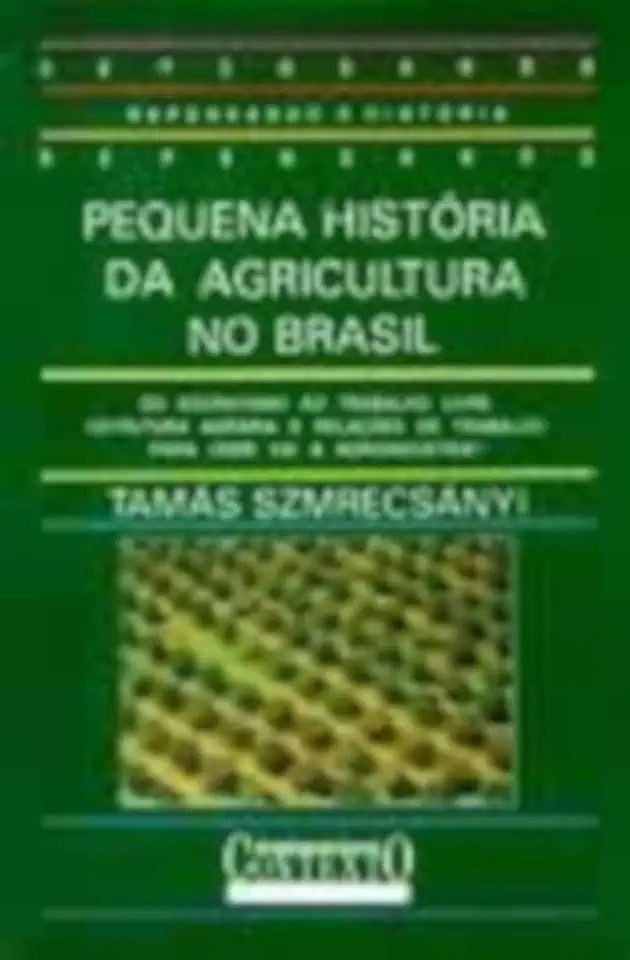
A Short History of Agriculture in Brazil - Tamas Szmrecsanyi
A Short History of Agriculture in Brazil
By Tamas Szmrecsanyi
A Comprehensive Overview of Brazilian Agricultural Development
Brazil, a nation renowned for its vibrant culture, breathtaking landscapes, and rich history, holds a prominent position in the global agricultural arena. With a vast territory encompassing diverse ecosystems, Brazil has emerged as a leading producer of a wide array of agricultural commodities, contributing significantly to the world's food supply. This comprehensive book, meticulously researched and eloquently written by Tamas Szmrecsanyi, offers a captivating journey through the annals of Brazilian agriculture, shedding light on its remarkable evolution and profound impact on the nation's identity.
A Tapestry of Agricultural Heritage
Brazil's agricultural heritage is a tapestry woven with threads of indigenous practices, colonial influences, and modern advancements. Szmrecsanyi skillfully unravels this intricate tapestry, tracing the origins of agriculture in Brazil to the pre-Columbian era, when indigenous communities cultivated diverse crops and developed sustainable farming techniques. The arrival of European colonizers brought new crops, livestock, and technologies, transforming the agricultural landscape and laying the foundation for Brazil's future agricultural prowess.
The Rise of Export-Oriented Agriculture
The 19th century marked a pivotal turning point in Brazilian agriculture, as the nation embraced export-oriented agriculture. Coffee, sugar, and cotton emerged as प्रमुख commodities, driving economic growth and shaping the country's social and political dynamics. Szmrecsanyi provides a nuanced analysis of this transformative period, highlighting the challenges faced by farmers, the impact on the environment, and the emergence of large-scale plantations.
Modernization and Technological Advancements
The 20th century witnessed a wave of modernization sweep across Brazilian agriculture. Technological advancements, such as mechanization, irrigation, and the use of fertilizers and pesticides, revolutionized farming practices, leading to increased productivity and the expansion of agricultural frontiers. Szmrecsanyi explores the implications of these changes, including their impact on rural communities, the environment, and Brazil's position in the global agricultural market.
Challenges and Opportunities in the 21st Century
As Brazil looks towards the future, it faces a complex array of challenges and opportunities in the agricultural sector. Szmrecsanyi delves into these issues, examining the impact of climate change, the need for sustainable practices, and the growing demand for food security. He also highlights the potential for Brazil to play a leading role in addressing global food challenges and contributing to a more sustainable future.
A Must-Read for Agriculture Enthusiasts and Historians
"A Short History of Agriculture in Brazil" is an essential read for anyone interested in the history of agriculture, the development of Brazil, or the global food system. Szmrecsanyi's engaging narrative, supported by meticulous research and insightful analysis, provides a comprehensive understanding of Brazil's agricultural journey, from its humble beginnings to its current status as a global agricultural powerhouse. This book is a valuable resource for students, scholars, policymakers, and anyone passionate about the intersection of agriculture, history, and sustainability.
Don't miss this opportunity to delve into the fascinating world of Brazilian agriculture and gain a deeper appreciation for the nation's rich history and its vital role in shaping the global food landscape.
Enjoyed the summary? Discover all the details and take your reading to the next level — [click here to view the book on Amazon!]